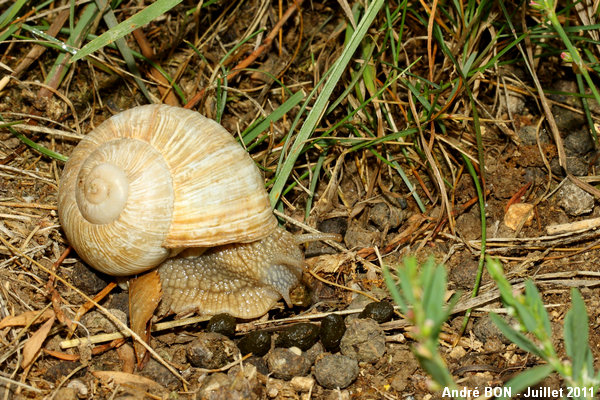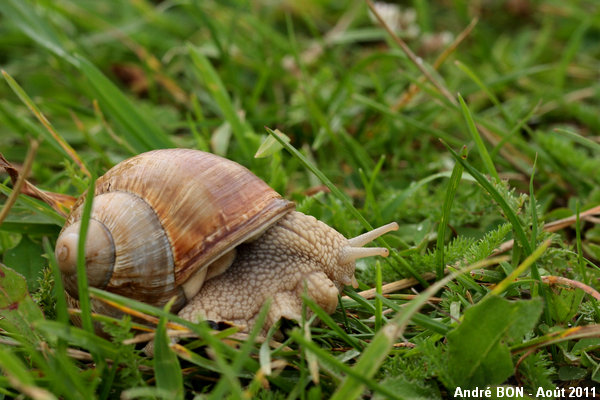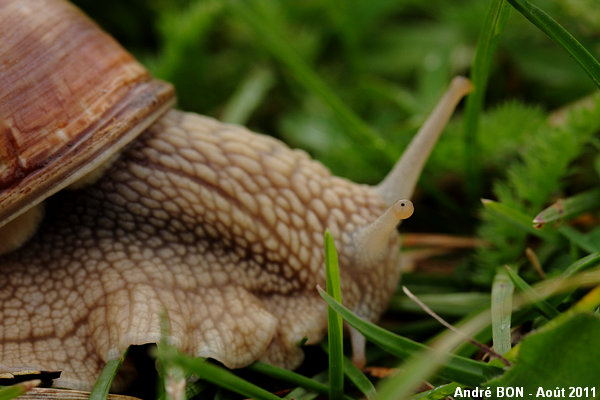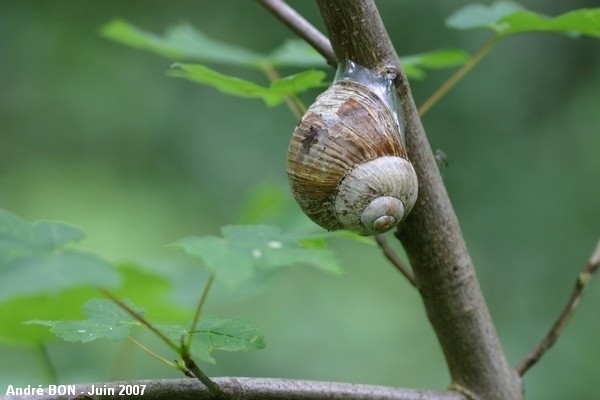



| Roman Snail (Helix pomatia (Linnaeus, 1758)) |




|
|
Scientific name: Helix pomatia (Linnaeus, 1758) Common name: Roman Snail Other names: Burgundy Snail French name: Escargot de Bourgogne Order: Stylommatophora Size: Shell's diameter: 50mm. Habitat : Meadows, woodlands, gardens and vineyards. Food: Vegetarian. Reproduction : Cross-fertilizing hermaphrodite. The eggs are laid in holes in the ground. Geographic area: East of France and Central Europe. |
The Roman Snail has a thick greyish-white or brown shell. It bears dark fuzzy spiral bands. It over winters by closing the shell's opening with a calcareous operculum. The eyes are located at the long tentacle tips. The short tentacles provide the sense of smell. The main differences when compared to Brown Garden Snail (Cornu aspersum) are: The larger size of the shell, maximum 50 mm for Helix pomatia while 40 mm for Cornu aspersum. The shell of Cornu aspersum is irregularly wrinkled while the shell of Helix pomatia shows well marked lateral growth stripes. The last whorl, compared to the total size of the shell, is clearly larger on Cornu aspersum than on Helix pomatia. The shell's aperture is larger and curved outwards on Cornu aspersum. It is rather curved inwards on Helix pomatia. |
| [To know more about the Roman Snail] [Next picture] [Top] |

|
Was it a coincidence to observe this Roman Snail near rabbit droppings? Doesn't it take some nutrients from them? |
| [To know more about the Roman Snail] [Next picture] [Previous picture] [Top] |

|
I am used to regularly observing Roman Snails in the region of Paris. I do not think that people pick them up here. |
| [To know more about the Roman Snail] [Next picture] [Previous picture] [Top] |

|
Small try with a precise focus on the eye. I will have to try again with a larger aperture so that the background is much more blurred. |
| [To know more about the Roman Snail] [Previous picture] [Top] |

|
I think that this one is in the resting position used to protect against any potential predator, inside the forest. I guess that this one is Helix pomatia because of the clearly visible growth stripes. |